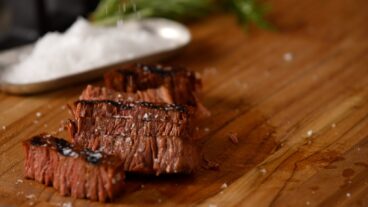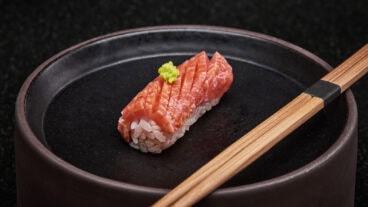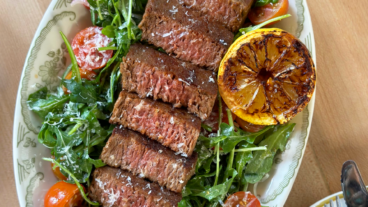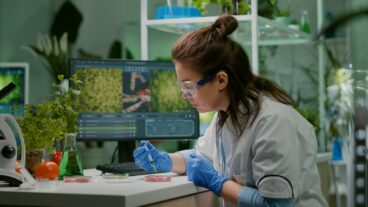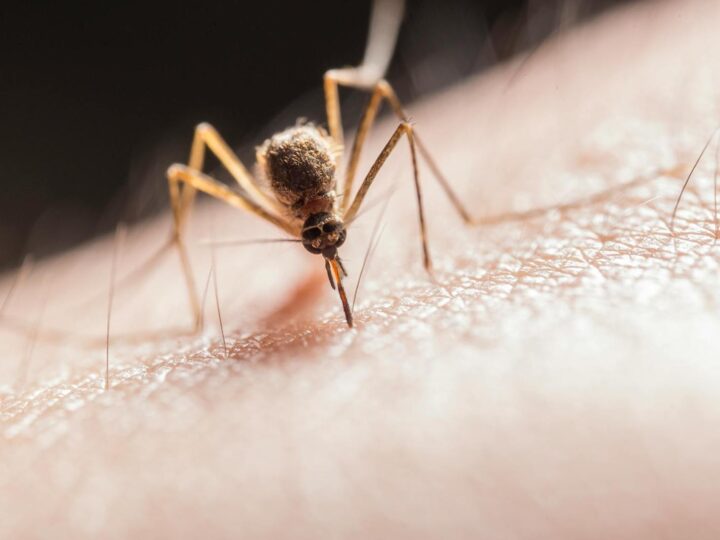The hit HBO dystopian drama “The Last of Us” is about a “zombie-ant” fungus that causes humans to lose control over their bodies and bite other creatures to spread the disease. In the show, nearly the entire world’s population is turned into fungus-spewing zombies within 48 hours.
That was the jumping-off point for our conversation with Jasmin Ravid, CEO and cofounder of Israeli food-tech startup Kinoko, an Israeli food-tech startup that aims to commercialize fungus – in this case, for the good of humanity.
“The Last of Us” became a hit in part “because we know so little about fungi,” Ravid tells ISRAEL21c. “We assume they’re mushrooms, but they’re something entirely different.”
She asked us to consider what happens when the world switches from eating animal flesh to plant-based alternatives.
While alternative proteins are better for the planet – using less land and resources while minimizing the methane released by cows, in particular – they can also be highly processed and not necessarily healthful.
Kinoko was founded on the belief that fermented fungi can turn plant-based protein alternatives into a nutritious, cost-effective and scalable superfood.
Protein, fiber, probiotics
While we haven’t tried them ourselves, Ravid assures us that Kinoko’s products taste delicious, with a rich umami flavor from the fungi generating amino acids.
In fact, Kinoko’s fermentation platform provides a product containing all nine essential amino acids to create a complete protein.

“We found a way to use fungi to grow this delicious protein-rich food,” Ravid explains.
“You can replace animal-based food and receive all the same nutritional value with just a fraction of the ecological damage, water use and CO2 emissions.”
It is also high in dietary fiber, which is important because most Western diners are not lacking in protein; what they need is more fiber.
The product is a probiotic as well. (Have some fungus instead of yogurt for breakfast?).
On top of lentils
Ravid tells ISRAEL21c that there are millions of species of edible fungi. Kinoko uses fungal mycelium, the thready root structure that typically grows underneath mushrooms.
Kinoko’s technology can grow fungi on top of various legumes and grains. The company is starting with lentils.
The lentil-fungus combination is placed in a tray akin to an ice cube container, and can be fashioned into any shape – a burger, chicken wing, lamb chop or kebab.
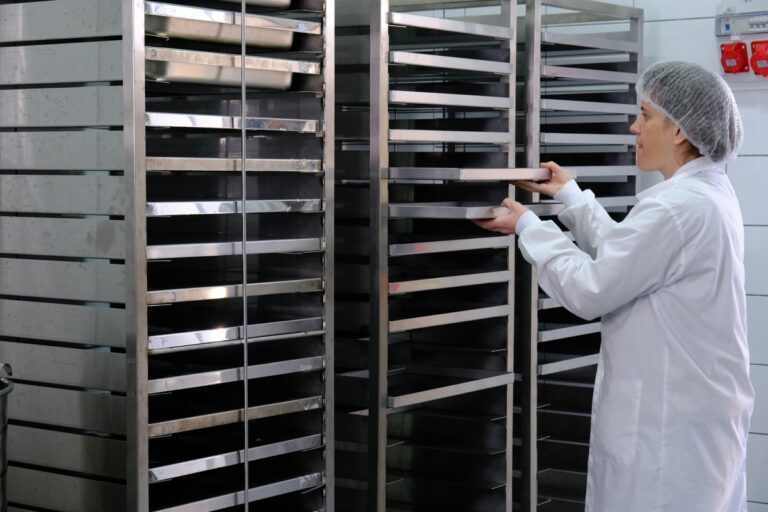
“We do some heat treatment to soften the tray, then we put in a small amount of our fungi, close the lid, and wait four days for fermentation while the fungus does its work. After four days, we take off the lid, flip the tray and burger patties fall out,” she says.

Earlier this year, the company opened its first production site in Ashdod.
“We are scaling to reach one ton per month in the first stage of our pilot production. Later, we will produce up to four tons per month and in our next commercial production site, we are planning to produce 20 to 50 tons per month,” Ravid notes.
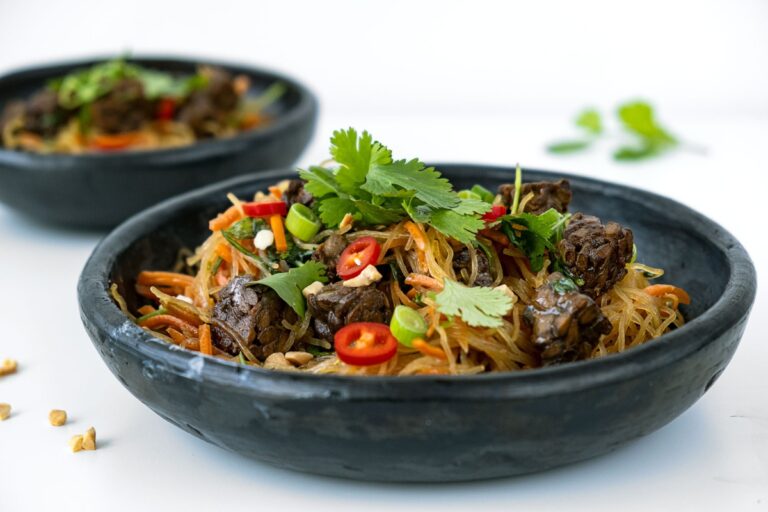
If Kinoko reminds you of another Israeli startup, GreenOnyx, you wouldn’t be too far off-base. Both add extra nutrition to edibles.
However, while GreenOnyx’s WannaGreens is a tiny aquatic plant grown in a lab and then added to foods, Kinoko is not making an additive but rather a final product.
B2B model
Kinoko’s fungi have preliminary approval in the United States and Europe; approval from the Ministry of Health in Israel is pending.
So, will you be able to go to your local supermarket and buy some fungus-enhanced super-food?
Not yet. Kinoko is pursuing a business-to-business model, where the meat analogs will be sold to partners who will distribute them in their own packaging.

“After that, we’ll only grow the fungus itself and let our partners do the final fermentation,” Ravid says.
That’s standard operating practice in the food business.
“If you look at other companies working with microorganisms, they buy the bacteria from a company that specializes in it.”
A female led-startup, Kinoko employs 11 people and has raised $3.5 million. In 2022, Kinoko won the Hebrew University’s 100,000-shekel Asper Prize for Emerging Startups.
Launch in a pandemic
The idea for using fungi as a meat alternative comes from Ravid’s Kinoko cofounder and CTO Daria Feldman. (A third cofounder is COO Hadar Shohat.)
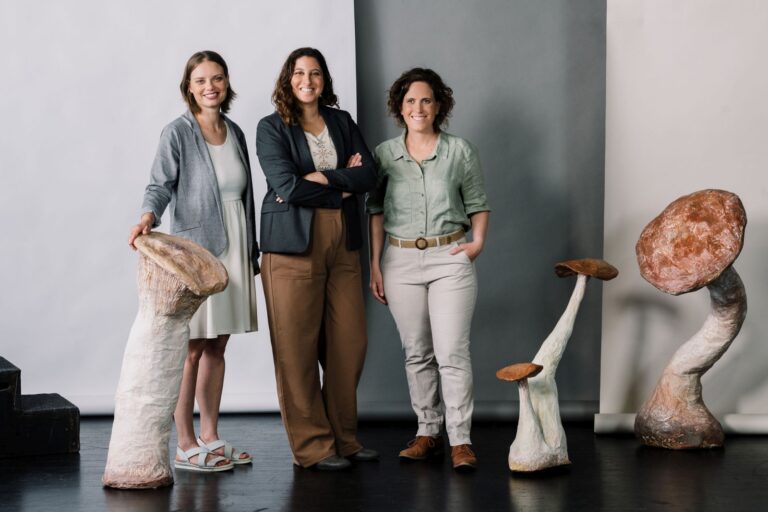
Feldman has been doing fungus research for a decade. She’s also a vegan.
“When Hadar and I met her, she was growing fungi in old coffee jars. I tried it, it tasted good and so we said, ‘Let’s make a startup.’”
Why the name Kinoko? “It means ‘mushroom’ in Japanese,” Ravid says. “When we founded the company, one of the founders had a good friend studying Japanese. She said, ‘Use this, it’s cute.’”
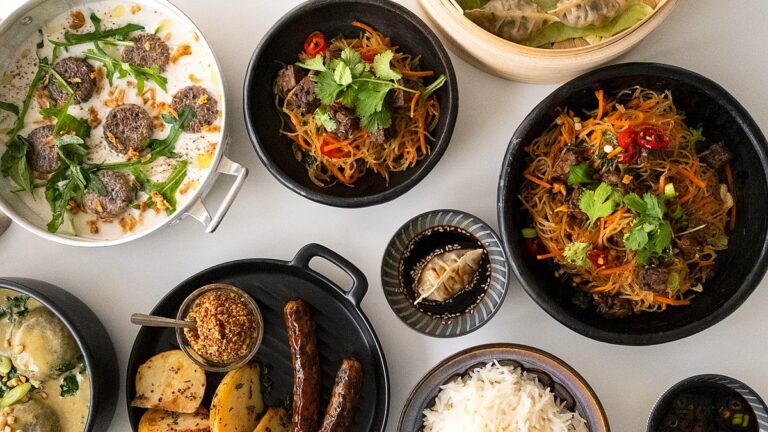
The company launched in late 2020, in the midst of the Covid-19 pandemic. That proved to be both a blessing and a curse.
“It really enhanced interest in the plant-based sector, so it became easier to raise money,” Ravid says. “People were sitting at home and became interested in trying new products, in cooking more and experimenting. There was a huge rise in demand for yeast since people began baking like crazy.”
On the flipside, they faced logistical problems.
“We were working at Hebrew University at the time, which was closed during the lockdowns, so we couldn’t get to our labs,” Ravid laments.
Nevertheless, that is all in the past and Kinoko’s super-nutritious fungi burgers are on their way to your kitchen.
“The goal is to reduce the amount of ultra-processed food we consume. Today, all we have is tofu. Everything else is processed,” Ravid says.
There’s one last question that just has to be asked. Could a zombie-ant like fungus really bring about an apocalypse?
“The possibility of ‘The Last of Us’ scenario coming true is about the same as for other sci-fi movies, like aliens landing on Earth,” says Ravid. “Which means – theoretically possible, but extremely unlikely.”
For more information, click here.








